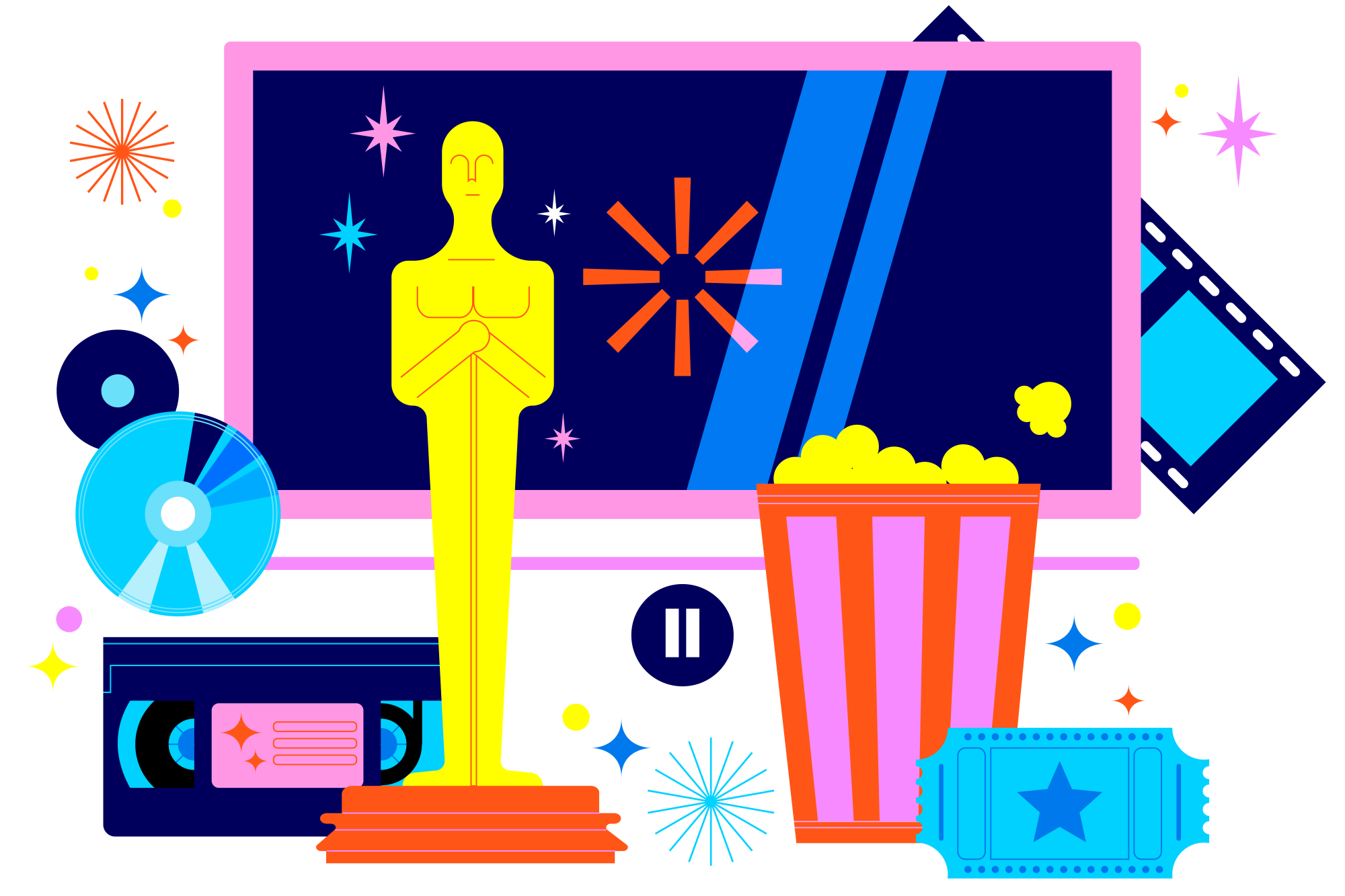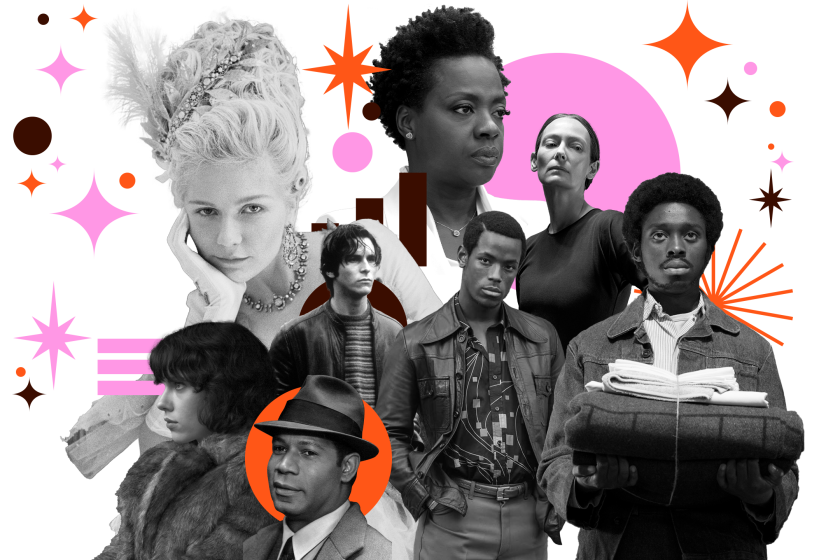
- Share via
Last year, when Sheryl Lee Ralph scored the Emmy for supporting actress in a comedy for ABC’s “Abbott Elementary,” the occurrence was unique — and not just because she sang a Dianne Reeves tune from the stage upon accepting it. It was the only acting, directing or series award, in the comedy, drama and limited series/TV movie divisions, won by a network TV show. Streamers — HBO/HBO Max (R.I.P.), Netflix, Hulu, Disney+, Apple TV+, Prime Video — took all the rest. Even the guest actor prizes.
And it’s no fluke. No network series has won best comedy since “Modern Family’s” last triumph, in 2014. No basic cable show has won drama series since AMC’s “Breaking Bad” last did it, in 2014 — and no network show has pulled it off since Fox’s “24” in 2006.
Especially in an industry that can be slow to accept change — and which, until 1988, didn’t even allow non-network or syndicated programming to compete for Emmys — it represents a staggering shift. In the course of a decade, streaming has remade the ferocious competition for Emmys and Oscars. And as they’ve come to dominate the nominations and awards, the streamers have done more than transform the nature of awards campaigns. They’ve shaped what an award-winning film or TV show looks like.
To understand how, though, you have to start with the 1988 rule change, even though it long predates streaming (or the internet) as we know it. John Leverence, the Television Academy’s former senior vice president of awards, calls it “the first major revolution in terms of eligibility,” opening the door for HBO to compete after years of being relegated to the CableACE Awards. “HBO felt there was no competition and they were just winning everything every year. So there was interest in moving into Emmy territory.”
The complete guide to home viewing
Get Screen Gab for everything about the TV shows and streaming movies everyone’s talking about.
You may occasionally receive promotional content from the Los Angeles Times.
The results were evident immediately — Danny Glover received HBO’s first acting nomination as “Mandela,” and Jackie Mason won for writing his special “The World According to Me!” that year. The trickle then grew into a flood, culminating with “The Sopranos,” which became an Emmy juggernaut. The mob drama, which collected 21 Emmys from 112 nominations over the course of its run, led HBO’s 2001 nomination blitz, leading among all networks for the first time.
“2001 was quite a shock,” says Leverence. “We handed out the pieces of paper with all the nominations listed. The HBO team, about 50 of them, were sitting on the steps of the old theater, and they were paging through it and gasping. It was a moment for them and definitely a moment for us.”
HBO dominated the nomination count for 17 consecutive years until being dethroned in 2018 — by Netflix.
But like the premium channels, the streamers needed an Emmy rule change to get in the game. They got the key one in 2008.
“That was the year that we added broadband to our description for distribution,” says the Television Academy’s vice president of awards and member services, Julie Shore. “Prior to that, we did have interactive cable, but that was more HBO and those services.”

Streaming content, like premium cable fare before it, has since come to overwhelm the broadcasters in the awards race in part because they, too, are free from FCC limitations about sex, violence, rough language, even subject matter. And premium/streaming services, traditionally based on a subscription model rather than advertising, have been able to embrace daring and offbeat shows such as “Fleabag,” “Squid Game” and “Transparent” — all major Emmy honorees — that might have scared off a broader audience. (And anyway, premium cable channels like HBO and Showtime are now streamers in their own right.)
Leverence also points to changes in the way Emmy voters access content as a key part of the revolution: “The history of the Emmys over the last 35, 40 years has essentially been the history of technology,” he says. “When we started the Emmy judging, it was done in hotel suites, and whoever could come out on an August afternoon to do the judging, those were the votes that were counted on the spot.”
Gold Derby’s Tom O’Neil, one of Hollywood’s most veteran awards watchers, says Oscar voters suffered similar limitations, especially in watching contenders: “In the old days, Oscar voters had to get in their car and go across town to watch something. It was a miracle when a little arty movie like ‘Prime of Miss Jean Brodie’ would win an Oscar. In the old days, they voted for the blockbuster — ‘Towering Inferno,’ ‘Jaws.’ They were nominated because voters saw them.”
O’Neil says the eventual introduction of VHS screener tapes, then DVDs, in the 1990s changed voters’ behavior: “That’s when you saw the voters behaving the way critics do and trying to prove how smart they are, voting for esoteric stuff, not the blockbusters.
“The game changer occurred recently, a revolution forced by COVID. Prior to that, the Oscars and Emmys had viewing portals that were garbage. Buffering issues, hard to find. They were troublesome to watch. This year, the motion picture academy got the portal perfect. And I mean perfect. To quote a president of a major studio, ‘Even a total idiot could hook it up.’”
Amid a writers’ strike largely about the power of platforms, we take a snapshot of the streaming pecking order, from Netflix to (formerly HBO) Max.
As a consequence, he says, films and series with “buzz” and “critical pedigree” now break through consistently, even if their overall viewership is smaller than broadcast TV shows or theatrical blockbusters. For instance, streaming services have won comedy series at the Emmys four out of the last five years — and the fifth winner, Pop TV’s “Schitt’s Creek,” built much of its audience on Netflix.
Leverence says today’s streaming portals have “expanded very significantly the number of people in the [Television] Academy who could vote. The ease with which you can just click and put in your secret handshake to get the programming is just extraordinary.”
In tandem with the expanded number of voters who can participate, the number of TV shows and movies available to them has grown with such technological advances.
“The networks, the studios, everybody is able to get their product in front of them,” says Shore. “It works very well. The little guy, the set decorator who would like to get her material in front of the voters in her particular peer group — it’s democratizing, a leveling of the playing field, which is welcomed by members of the [Television] Academy and the industry at large. In a democracy, the best voter is the well-informed voter. At the Emmy Awards, the best voter is the well-informed voter.”

One striking aspect of the streamers’ entry into the awards race has been the speed of their success. Netflix’s first original series was “Lilyhammer,” in 2012. Then in 2013, “House of Cards” received nine nominations in its first year — including for drama series, lead actor and actress, while winning for direction. It wasn’t supposed to be that easy.
“One of the things that happened when you got into big-time streaming was that there was more money and more prestige,” Leverence says of the massive capital influx streamers such as Netflix poured into production. “That absolutely impassable line from features to TV really went away. There was a new kind of mobility from writers, directors, the crème de la crème of the filmed entertainment business moving along with the flow of Netflix into the world of streaming production.”
He has a point: “House of Cards” boasted as its stars Robin Wright and Oscar winner Kevin Spacey. That directing Emmy winner: David Fincher.
As O’Neil points out, though, there remain points of resistance: “Netflix still hasn’t won best picture, and drama series only once. There was enormous jealousy in town, backlash against them because they were the first. Then Apple [TV+], in its second year of existence, did something no entertainment company has ever done: It won best picture [‘CODA’] and best series [‘Ted Lasso’] in one year.
“Netflix has won best documentary, limited series [‘The Queen’s Gambit’], but it never cleaned up until ‘The Crown.’ Some say that’s jealousy. They’ve had to fight for every inch.”
Film critic Justin Chang looks ahead to some of 2023’s most anticipated movies and offers his guide to immersing yourself in their directors’ past work.
O’Neil estimates the industry drops around $300 million a year campaigning for the Oscars, Emmys and other awards. While the phenomenon of the “Oscar bump” has strong statistical support, especially after the nominations in certain categories, streamers like Netflix aren’t playing the same game the studios are.
“I’ve asked Ted Sarandos why he’s so covetous of awards: ‘You guys are really, really spending,’” says O’Neil. “They’ve had their hearts broken by ‘The Irishman’ and ‘Power of the Dog.’ Sarandos told me, ‘The reason we care and are so aggressive is to draw the best talent to Netflix. If they see us vigorously promoting our content, they know we’ll support them. I want the best talent with the best movies to come to me first.’”
That emphasis on awards has worked at least in one way: Netflix collected 44 Emmys in 2021, besting the nearly 50-year-old record previously held by CBS. And observers don’t see this as a pandemic blip, but as the way of the future.
“A whole new strange and wonderful world is being created, and [44 wins] was an indicator of what that world would be,” Leverence says. “I think sometimes we look at raindrops as blips, but effectively, they’re part of a larger storm. The larger storm was definitely there with ‘House of Cards’ in ’13 and on and on and on.”
More to Read
The biggest entertainment stories
Get our big stories about Hollywood, film, television, music, arts, culture and more right in your inbox as soon as they publish.
You may occasionally receive promotional content from the Los Angeles Times.














